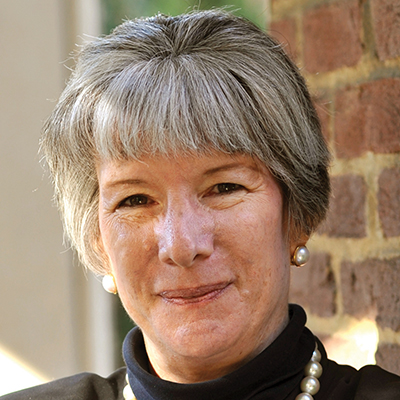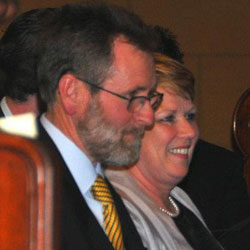The tragic and horrific murder of eleven year old Luke Batty — killed by his father at cricket training — leaves us all speechless, I think. Except, remarkably, in the case of Luke’s mother, Rosie Batty, who has had a lot to say, and said it graciously.
It’s worth watching her extended press conference. She eloquently relates the ubiquity of domestic violence, the profundity of a parent’s love, and who Luke was. Her poise obviously belies the desolation and grief which afflicts he, but even on the subject of her grief, and what she needs right now, she is articulate and compelling.
The most famous quote of the Second Vatican Council relates to this situation.
The joys and the hopes, the griefs and the anxieties of the men of this age, especially those who are poor or in any way afflicted, these are the joys and hopes, the griefs and anxieties of the followers of Christ. Indeed, nothing genuinely human fails to raise an echo in their hearts.
Gaudium et Spes, 1
In other words, the Church asks us — our Lord asks us — to make Rosie Batty’s grief our grief, and to support and assist her.
But how do we do that? What do we do, to empathise with the afflicted? To become to them an alter Christus, another Christ?
I think in the first place, we have to be present to grieving friends and acquaintances. It’s so much easier to avoid grieving people. On the one hand, “we want to give them space.” On the other hand, we don’t know what to say. We have nothing to offer them anyway. We’ll only get in the way.
But this is wrong. Followers of Christ have to be present. “Giving them space” only increases the experience of isolation and loss.
In the second place, we have to acknowledge what has happened. We need to tell them we are sorry for their loss. We need to talk about the loss — name the person who has died; share memories. Sometimes a person might tear up, and we’re compelled to look away. We’d like to change the subject. But it’s better at that moment to listen. And sometimes “listening” means attending to the silence.
One of the greatest supports we can offer the bereaved, I think, is to mention the elephant in the room. This gives them the opportunity to share their memories and grief.
Of course there are other, pragmatic, supports. A meal. An errand. When we offer to help in these ways, we need to be specific. “Can I mow your lawn on Saturday?” “Can I bring around a meal tomorrow? It’s easily frozen.”
Now having said all that, being present and giving our time and support shouldn’t be invasive. People do need some space. And we can say the wrong thing.
“I know how you feel.”
No. We can’t know. So we shouldn’t say it.
“They’re with God now,” or “Death isn’t the end.”
These statements, of course, are true. But they aren’t always consoling. At the wrong time, they’re offensive. Talking about the resurrection too easily, and too soon, denies the reality of loss and death.
We can only imagine the pain and anguish of Mary the mother of Jesus, standing at the foot of the cross. It would have been easier for her to stay away — especially since she expected to see her son again on the third day. But she didn’t. Before rejoicing with her son on Easter Sunday, she suffered with him on Good Friday.
Our Lady’s faith in the resurrection wasn’t diminished by her grief. Nor is ours.
So we don’t look past the cross; we attend to it. We are present at people’s Calvary. And like Mary — who stands for the whole Church — we pray for the afflicted, and we accompany them, in their joys and hopes, griefs and anxieties.







Fr John
Thanks for this very special article, Rosie’s grief laid bare has captured all of us and for those who really are caught up in grief that is raw, will certainly be helped by Rosie.
This is one instance where I think the media coverage of a tragedy has been excellent. The coverage has and will continue to do so much good. I’m going to label it the Luke, Greg and Rosie Contribution to our culture and society.
One small point though is the use of the word, murder.
Murder is a legal term, dependent on so many things. Using it without the benefit of all the legal machinery could lessen what has happened, a killing, by a parent, of his child.
Using the word ‘murder’ could dismiss much of the conversation we need to engage our culture and society in.
Using the word ‘murder’ could leave us with an excuse each time we get angry. We would never murder, we excuse ourselves, but sometimes, our anger does ‘kill’ even if only in our minds.
Greg Anderson killed his child. What would lead a father to killing his child? I’m 100% certain that, even in the very great state of insanity that Greg could have been in, use of the word ‘murder’ stops the conversation far too short of where it needs to be taken in order to learn the lessons of caring for the mentally ill and the seriously troubled.
It’s a bit like the sexual abuse of children. Labels are quickly applied, sentences and condemnations given, but what about those teeagers growing up now with dark thoughts about sexual activity with young children. Where can they go to get the help they obviously need. How can they express themselves so they will be listened to and not just labeled?